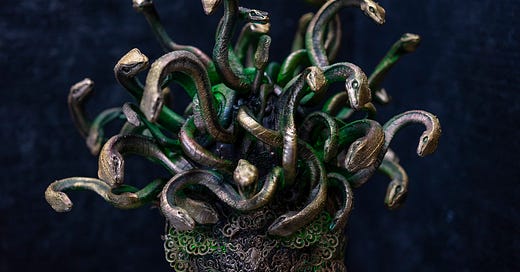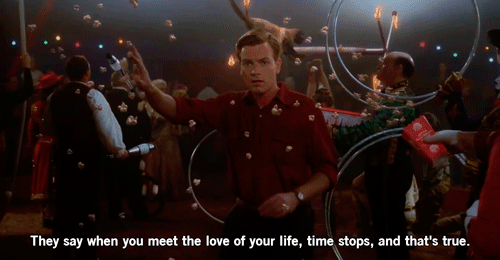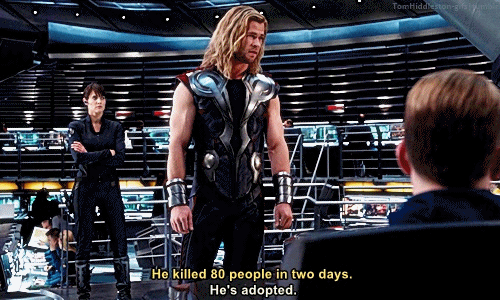Welcome to From the Teacher’s Desk, where we take turns further reflecting on our episodes and applications to the classroom.
This week, I promise to be quick. But after Sarah and I talked about Good Omens as an example of modern mythology, I couldn’t help but think about all the places where I see mythology throughout modern media.
It’s a great reminder human stories never really change, across time and distance and culture. Here are my top five favorite examples of mythology in modern media:
Circe, by Madeline Miller
If you haven’t read this book yet, you really should. Madeleine Miller’s two novels, Circe and The Song of Achilles, are both stunning. But there’s just something about giving agency to one of the few women to outsmart Odysseus. Check out this excerpt to give you a taste:
After I changed a crew, I would watch them scrabbling and crying in the sty, falling over each other, stupid with their horror. They hated it all, their newly voluptuous flesh, their delicate split trotters, their swollen bellies dragging in the earth’s muck. It was a humiliation, a debasement. They were sick with longing for their hands, those appendages men use to mitigate the world.
Come, I would say to them, it’s not that bad. You should appreciate a pig’s advantages. Mud-slick and swift, they are hard to catch. Low to the ground, they cannot easily be knocked over. They are not like dogs, they do not need your love. They can thrive anywhere, on anything, scraps and trash. They look witless and dull, which lulls their enemies, but they are clever. They will remember your face.
They never listened. The truth is, men make terrible pigs.
Big Fish (2003)
This film is based on the original novel by Daniel Wallace, and it offers a great perspective on how tall tales function as a type of mythology. Tim Burton’s movie adaptation leans further into the impact of stretched truth (or a “big fish”) in the protagonist’s relationship with his father, Edward Bloom.
But the most beautiful part of this specific mythology media is how it captures the unexpected magic in everyday moments.
The Odyssey, translated by Emily Wilson
This isn’t directly an example of new mythology. But just like Madeleine Miller offers a new angle to take in a well-known epic tale, so also does Emily Wilson’s fresh translation. In her hands, The Odyssey shifts from glorifying Odysseus (someone who is deeply violent and consistently cheats on his wife) to acknowledging him for the flawed human he was.
You can read more about the impact of Wilson’s translation on Homer’s epic here.
Thor movies (2011-present)
I didn’t mention the Wonder Woman franchise for a reason. Maybe someday I’ll write out my whole rant about how this adaptation of Greek mythology is neither purely feminist nor accurately Greek.
Thor, however, in the hands of the Marvel movie movement, offers some great (and accurate) nods to Norse mythology. Unlike Odysseus, Thor is the perfect blend of extra brute and no brains. Plus, it offers constant entertainment through Thor and Loki’s love-hate family relations.
(And have you checked out this Team Thor video before?)
A Thousand Ships, by Natalie Haynes
This is a new love I’m adding to my list. But as soon as I found out Madeline Miller recommended this author, I knew I had to check her out.
This specific novel by Haynes shifts the perspective of the Trojan War from the men on the battlefield to the women trying to survive the war’s aftermath. It is honest and raw, and the narrator’s muse steps in several times to make sure he stays focused. Chef’s kiss fun 😊
Honorable Mentions
Cinder, by Marissa Meyer (we recorded an episode about this back in the day!)
What about you? Where are you seeing and loving mythology adaptations in pop culture right now? (And don’t worry - Sarah and I haven’t forgotten about Percy Jackson. Stay tuned!)
Please “like” by clicking on the ❤ and share this post with your friends, colleagues, and fellow lit thinkers.






